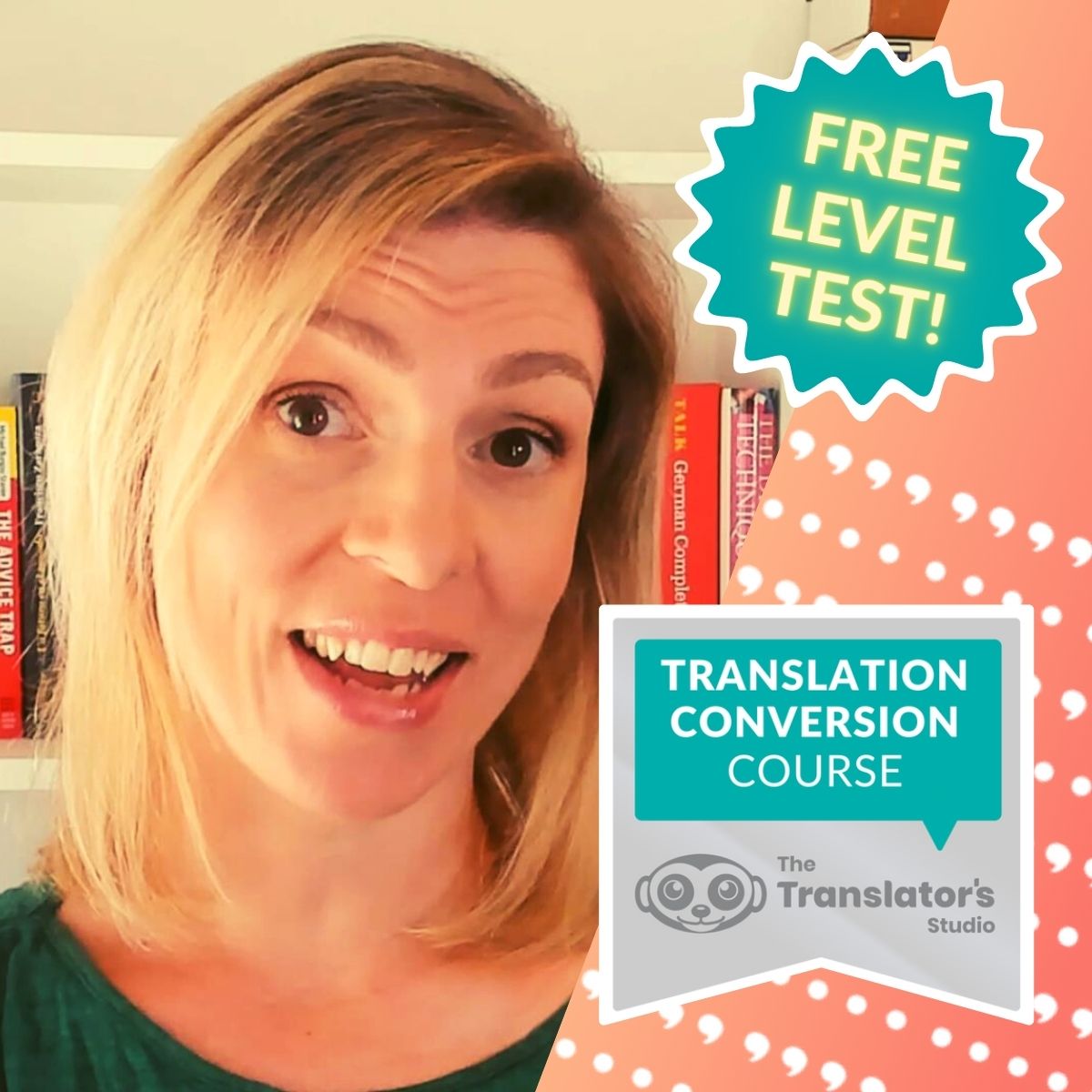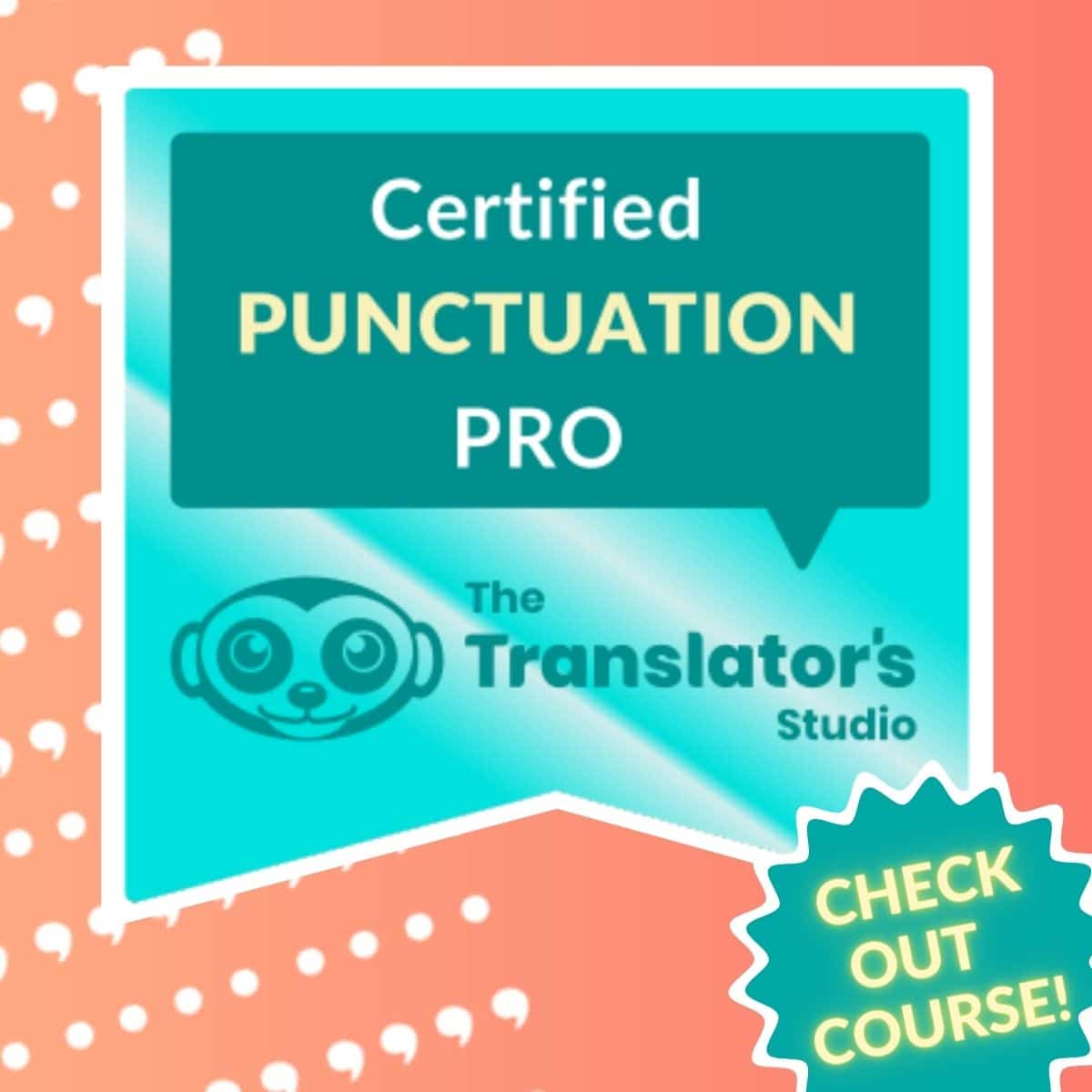Do you hate marketing? Lots of freelancers say they do. But successful marketing is part of being successful in business online. These days, every freelancer needs a plan on how they’re going to get found online.
Sometimes I wonder whether people say they hate marketing when what they really mean to say is that they’re overwhelmed by the size of the task. With so many options to get found online, where are you supposed to start? How do you avoid picking the wrong option and wasting time?
I’ve been selling my freelance services online since 2009. In 2014, I created the translator training business that would go on to become The Translator’s Studio. All this meant learning how to market and sell online. Ensuring potential customers can find your business online is crucial for building a strong online presence and fostering trust.
Over the years, I’ve delved deep into search engine optimization, SEO strategy and a host of different types of digital marketing. In fact, there aren’t many online marketing options that I haven’t tried. So, in this article, I’ll share my experiences to try to help you figure out where to invest your online marketing efforts.

How do you start digital marketing yourself online?
Before we dive into the options for getting found online, here are a few tips on the steps to take to prepare yourself to market online.
1. Create a couple of buyer personas
A buyer persona is a detailed description of your target client. It might include demographical information, notes on their tastes, dreams and daily routine, and information about the problems they have that you solve for them to make their life better.
Once you have a buyer persona, you can choose their preferred online channel to find freelancers. You can also write your marketing content for them as an identified person rather than just for anyone. This will help you convey your value in your copy and make the whole process faster and hopefully more successful.
If you’ve never encountered buyer personas before, check out this article on how to create a buyer persona.
If this feels overwhelming to the point that it blocks you, you can skip this step and come back to it later. But I encourage you to give it a try, even if you just do a simple description and then build on it later on.
Buyer personas are really important to help you see what you need to write in your marketing. They play a crucial role in effective content creation and help you make sure your content is tailored and engaging.
2. Make your updated resume (CV)
Your updated resume will be the building blocks that help you write the content of your online profiles. Before you do anything online, get your CV up to date. This should include a personal statement at the beginning telling potential clients why they should work with you, a work history and an educational and CPD history.
If you have lots of experience and offer a range of services, choose the highlights, or consider making more than one CV. If you don’t have much experience, focus on the personal statement to communicate your value.
With buyer persona and CV ready, you’ll have a good basis to start creating online profiles. So, now to the grain of the issue. Find out how to write a good CV cover letter.
- Become a confident professional translator
- Learn fast with our extremely detailed feedback
- Prepare for the CertTrans exam
- Get your translation certificate
Basic online presence: where do you have to be seen online?
The best place to build a profile and get found online will depend on you and your target clients. Below is a list of your basic options with some pros and cons, to help you decide which is best for you.
You don’t have to do all of them. Start with the one that feels most right for you, build a strong profile, then grow to the next if you need to.
1. Social media
I hate social media. There it is. But I have quite a few social media profiles. Why? Experimenting over the years. Getting interested in something and then losing interest. Thinking I need to be everywhere so as to not miss any possible clients. And eventually, not wanting to close the profiles down after all that effort.
For The Translator’s Studio, we have a company page on LinkedIn and Facebook, where our social media manager publishes something each week, and almost dormant accounts with X and Instagram. As a freelancer, I have personal accounts with LinkedIn, Facebook and X, but I only pay attention to LinkedIn, and that’s mostly only my profile page.
Why LinkedIn is best for most freelancers
If you’re trying to get noticed online by potential clients, think about where those potential clients go to find businesses and freelancers to employ. Where would you go?
A lot of larger employers have LinkedIn premium accounts and they even manage their job application processes through the platform.
Everyone who wants to get found for work online should have a detailed LinkedIn profile that they update on a regular basis.
If you actually like social media, you can extend your reach by posting regularly and interacting with others. When the potential client finds your profile, your posts will help show them how interested you are in your work. This advice was underlined by Daniela D’Amato when I interviewed her on Localization and Impressing Project Managers.
But if, like me, that type of marketing doesn’t float your boat, treat it like a search engine. Help potential clients find you when they’re searching by updating your profile regularly and using keywords. From your end, search for job publications and apply for them, and try reaching out to hiring managers.
Pros of using LinkedIn
- Be in the right place when your potential client is in the mindset of looking for someone to employ.
- If you optimise your profile, it can work like a search engine and you can get found.
- Share your educational and employment history publicly without having to put downloadable documents online.
- Search for jobs and submit applications.
- Network, train and publish articles.
- Have a profile in more than one language.
- Free and secure (if you use dual authentication).
Cons of using LinkedIn
- Not your real estate. They have the power to shut down your account.
- Feeding the social medial content machine is tiring.
- You’re advertising yourself next to your competitors.
2. Website
Freelancers don’t have to have a website. You can just have an optimized LinkedIn profile. In fact, I only recently created a freelancer website for myself. All these years, I’ve blogged and sold courses through The Translator’s Studio and sold my services via my CV, online profiles and word-of-mouth.
That said, a simple freelancer website is your own real estate. It could just be a single page that looks like a prettier version of your CV, or you can add details of all sorts, such as testimonials, a portfolio of work or even a blog. This is your space and you grow it as you like over time.
Your own website is a place you can send people to by linking to it in your cover letters, CV and online profiles. Also, your clients can recommend you and they can send people to it. You can fill it as you wish and there are no competitors there.
Regardless of what any website designer might try to sell you, don’t start out by worrying about your website’s SEO. A simple freelancer website is highly unlikely to ever rank on Google. To do that, you need a blog, in-depth SEO training and a lot of dedication.
Pros of having a website
- It’s all about you. No competitors to distract visitors.
- It’s your space and you can use it to create your brand identity, showcase your amazingness and grow.
- Possibility of expanding to offer more services and to monetize through a blog or courses.
Cons of having a website
- You have to pay yearly hosting and domain fees.
- You either have to pay a website designer or learn to build one yourself. This means more money and/or more time.
- You won’t get found online unless you conduct thorough SEO keyword research and engage in persistent, dedicated website search engine optimization effort over the long term.
3. Professional association(s)
There are lots of good reasons to join a professional association, such as becoming a CIOL chartered linguist. In terms of getting found online, these associations all give you space on their websites to add an online profile. They also have search features where potential clients can look for a service provider. Finally, they offer you the chance to link to your social media profiles and website, which can help your SEO.
I’ve been found by a number of good clients as a result of being a member of these associations. My top tip would be to join one in the country of the language you translate from because you’ll probably find less competition there. For instance, I’m a member of Asetrad in Spain and I’ve had more clients find me through that association than through any of the others.
Pros of joining a professional association
- Dedicated profile space.
- Clients from outside the industry will search for service providers there.
- Different membership levels can reflect your experience.
- All the other benefits of professional membership: prestige, logos, networking, training, mentoring, discounts and so on.
Cons of joining a professional association
- The pricing can sometimes be quite steep, though they generally have different levels.
Get a certificate in punctuation!
- Learn punctuation fast
- Get confident
- Build up your CV to impress clients
4. Profile on ProZ.com
When I started freelancing in 2009, my ProZ.com profile was my first port of call to start creating my online presence and attract potential customers searching for translation services.
While it sometimes takes a bit of beating on social media, it’s the leading platform for translators, which is why it got it’s own space on this list. I’ve always found it a good source of clients for my combinations of Spanish and French to English. It isn’t true that you only get bottom feeders there.
Other translators report success with TranslatorsCafé. If you need clients, why not set up various profiles in different places? They don’t take much effort to set up and are normally free to start. You can always get rid of them later.
Pros of having a ProZ.com profile
- Lots of potential clients search there for linguists, translators and copywriters.
- You can apply to become a Certified Pro and get a logo for higher status.
- Much more than just a marketplace, with a wide offering of training and networking activities, free and discounted software, terminology banks, the Blue Board where freelancers rate clients and more.
Cons of having a ProZ.com profile
- You have to pay for it, though the price is affordable for most people.
- The volume of clients there means you’ll encounter some bottom-feeders and undesirable clients and so you have to do your due diligence using the Blue Board.
5. Linguist marketplaces and general online marketplaces
General online marketplaces where freelancers can find clients include Fiverr and Upwork. Language-specific marketplaces include ProZ.com, TranslatorsCafé and Smartcat.
I’ve never tried to sell my services on a general marketplace because of the battle to the bottom where pricing is concerned. However, I know colleagues who’ve successfully been found by clients there.
It could be a good option for you if you’re starting out, need to build up your CV and aren’t too worried about how much you get paid. Being listed on these online marketplaces can significantly help customers find you, while enhancing your visibility and accessibility.
Linguist marketplaces like Smartcat are worth a go. These companies make their marketplace available to their software clients. So, someone already using Smartcat software can search for linguists from inside the software to help them complete their project. Talk about being in the right place at the right time.
Pros of being on an online marketplace
- Good access to a range of clients who are in the mindset to buy.
- Payment systems with payment protection.
Cons of being on an online marketplace
- Prices may be low.
- The marketplace may take a cut of your pay.
Advanced online presence: where else can you get found online?
Once your basic marketing strategy is set up, there are a range of options you can add in. These aren’t for everyone. I’ve invested a lot of time in all the options I’ve shared below. They’re all time consuming and involve a big learning curve.
So much effort is involved, that enjoyment must come first if you’re going to succeed with any of them. Just maybe, you’ll eventually make money out them, but I wouldn’t count on it.
This type of advanced content marketing will help you get found online by consolidating your authority and driving traffic through your website and other profiles.
6. Blogging for content marketing
Writing a blog on your website is a sure-fire way to show any visitors to your site that you’re interested in what you do. Producing quality content on your blog not only engages your audience but also helps to build trust once the client has found your site.
Search engine optimization blogging (SEO blogging) to rank in search results on search engines and bring clients into your site can be extremely effective. The vast majority of course sales at The Translator’s Studio are the result of our sustained SEO blogging efforts.
However, and this is a big however, it takes a huge amount of time, money, and effort to be able to consistently rank high on Google. The competition in keywords related to translation is massive and you have to find a way to compete with automated translators and language service providers with teams who create their content and very deep pockets.
Guest-posting is a form of blogging you can use to get published online without having to run your own site. This can be useful for building up your authority and helping the SEO of your own website. The same goes for writing articles and posting them on LinkedIn, which is another good way to get found online.
Pros of blogging
- One of the best ways to showcase your knowledge and passion.
- A great way to work on improving your writing.
- Potential to make passive income through affiliate links and monetization.
Cons of blogging
- Hard to rank on search engines.
- It takes time to build up a following of people who actually read what you write.
- You need a website to blog on.
- To be a ranking blogger, there’s a big learning curve and you’ll need to invest in the necessary software.
7. Newsletter
Once people have started to find you online, a newsletter is a way to stay connected with your community and sell to it, as long as you write it well and consistently.
You can start one for free on sites like MailerLite and Mailchimp and then progress to their paid versions or more powerful paid software like ActiveCampaign as you grow in success.
This option is best once you have some traffic on your blog or a social media following because you need people to populate your mailing list.
Pros of writing a newsletter
- A great way to reach loyal followers by showing up in their inbox.
- Fantastic to work on your writing skills.
Cons of writing a newsletter
- You have to do it consistently over the long term to get a decent readership.
- You need some base you can use to start collecting subscribers.
- Learning curve and eventual financial investment to get the necessary software to properly manage a successful newsletter.
- May not suit certain types of client base.
8. YouTube
If you like visual and audio communication, starting a YouTube channel can be a lot of fun. Video is perhaps the best way to connect with potential clients. When students come to do our courses at The Translator’s Studio, some of them already feel they know me because they’ve watched lots of our videos. This builds trust.
Pros of running a YouTube channel
- Excellent connection with your audience.
- Creative activity that helps you build up your skillset.
- Potential to make some small earnings through ads.
Cons of running a YouTube channel
- Giant learning curve.
- Investment in equipment and software to make decent videos.
- It takes a long time to get enough followers and watch hours to make money from ads.
- May not suit certain types of client base.
9. Paid ads
For anyone with an established website designed to get found by end clients, paying for Google ads or adverts on one of the social media outlets is a way to get found online in just a few seconds. Whenever I’ve paid for ads, I’ve seen a growth in traffic to my website.
Using Google Ads can significantly enhance brand visibility and increase traffic by targeting users actively searching for products. You can channel them into your landing pages and hopefully get them into your sales funnel.
This advanced digital marketing technique has never really worked for me. My potential client base is too niche and my pockets aren’t deep enough.
Pros of paid ads
- The fastest way to get seen by your potential clients.
Cons of paid ads
- High up-front outlay. You can spend a lot fast.
- Less targeted because the search engine or social media outlet will show them to users who meet their specifications.
- Work to optimize ad content still leaves you without much control.
To sum up, which is the best way to get found online?
If you’re starting out as a freelancer, begin by setting up your well-optimized, detailed LinkedIn profile. Next, move on to professional associations and marketplaces like ProZ.com, where you know there are clients looking for freelancers.
Once that’s consolidated, if you want to do even more, focus on your website and consider writing articles for your own blog or as guest posts to publish elsewhere. With this set of tools, combined with regular updates, potential clients should manage to find you online.
Get translator certification!
Of course, once clients find you, they’re going to want to make sure your qualified. Let us help you prepare for the CertTrans and DipTrans exams.
- Become a confident professional translator
- Learn fast with our extremely detailed feedback
- Prepare for the CertTrans exam
- Get your translation certificate








Thank you for the commendable efforts you have made to provide the rest of us with guidelines on how to gain professional visibility. Really, you have given so much for so little in return. Many thanks.